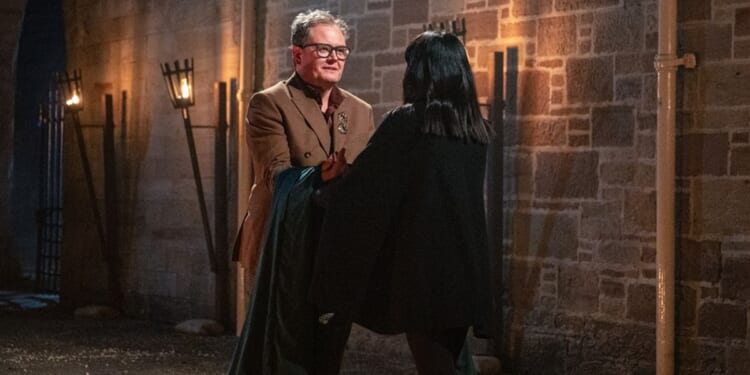THE much hyped Celebrity Traitors (BBC1, Wednesdays and Thursdays) has begun, including a refreshingly broad range of participants. The BBC has followed the same principles for choosing celebrity contestants that it uses for Strictly Come Dancing, wisely including those who are sure to appeal to younger audiences, such as the YouTuber Niko Omilana. Also taking part are the actress Celia Imrie, the singer Paloma Faith, the comedian Alan Carr, and the historian Professor David Olusoga, to name just four of the 18 celebrities.
Traitors is a game of bluff and nerve which enables people to indulge their darker instincts. Lying, back-stabbing, trickery, and deception are all vital skills if the chosen traitors want to succeed. I am interested in how different the game is when played by celebrities: a cohort famously not bereft of ego. Also, the round-table segment can be a nail-biting and awkward spectacle, which often descends into angry confrontation. I wonder whether the dynamic of this will be different among celebrities who know one another professionally and, in some instances, personally, or if the chummy civility will fall apart as the game gets more involved.
The high quotient of actors and performers is also interesting, as these professions were seen in the other series as being deeply suspect (1 January). The successful tactic of trying to remain under the radar, which Alan Carr states from the off is his (highly dubious) plan, is much harder when your entire professional life has been about rising high above it. It is a fascinating social and psychological experiment and blisteringly entertaining. I can’t wait to see what happens.
Victoria Beckham (Netflix, Thursday) was compelling but disappointing, overall, as the promised intimacy of this portrait of the fashion designer and former Spice Girl never arrived. The entire three-part series is scrupulously curated, edited, and photographed; it is basically one long glorified advert for brand Beckham.
Victoria B. does tentatively admit to having had an eating disorder as a result of extreme press intrusion — which isn’t surprising, given the extent of the venom directed at her. But, as a leading figure in the fashion and beauty industry, she is both a victim of its strictures and a willing accomplice, who sets the standards and profits from them.
An inevitable result of being in the spotlight for criticism is her reputation for guardedness and image preservation, which she admits to in a rare candid moment: “I’d love to have the confidence to walk out on to a red carpet and smile. But I just don’t.” If beauty, enormous wealth, success, a long marriage, and a loving family cannot make someone confident enough to smile, this is a desperately sad indictment of the shallowness of our image-obsessed popular culture.

















